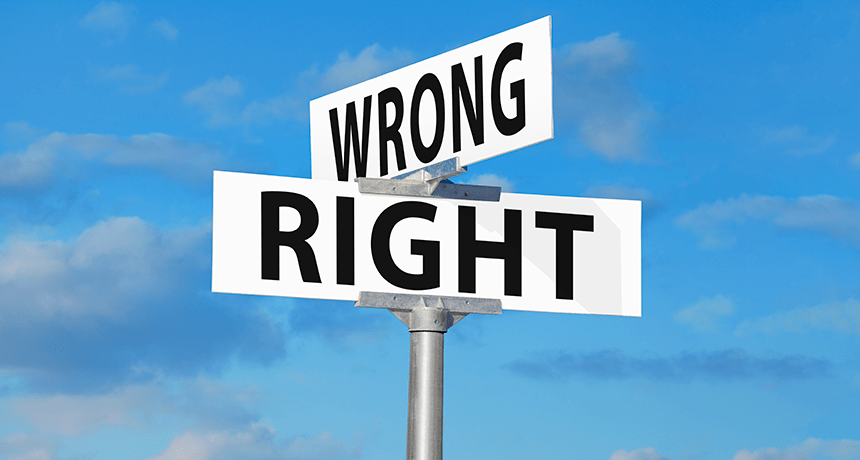Questions for ‘What part of us knows right from wrong?’

Your conscience is what helps you decide whether your actions or impulses are good or bad, right or wrong.
JamesBrey/iStock/Getty Images Plus

Your conscience is what helps you decide whether your actions or impulses are good or bad, right or wrong.
JamesBrey/iStock/Getty Images Plus